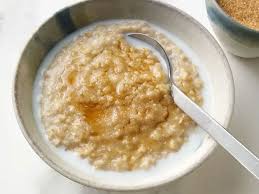Hot porridge. Really?
When recently transcreating a nautical novella from Slovak into English, I was confronted by the following passage:
“Možno ma mohol priamo upozorniť a nepokúšať takýmito frázami. Načo chodiť okolo horúcej kaše. Ja nemôžem za to, že on bol perfekcionista.“
Horúca kaša. Naozaj?
But a combination of linguistic insight and cultural experience soon yielded the appropriate English equivalent ‘to beat around the bush’ (which one again highlights the limitations of MT/AI, which simply provide the nonsense word-for-word translation as ‘why walk around a hot mess?’), i.e. to avoid getting to the point or speaking indirectly about a topic rather than addressing it directly. It often implies that someone is being vague or evasive, typically because they are uncomfortable discussing the main issue.
It’s typical of a metaphor that is automatically used in English, without much thought going into its background or logic. What bush? Why beat it? Like many such expressions, its usage is archaic: in this case, dating back to medieval England where hunters would “beat around the bush” to flush out game (such as pheasants and grouse) from their hiding spots in the underbrush. Instead of going straight to the target, they would stir up the bushes to drive the feathery creatures out. Over time, this literal action evolved into a metaphor for avoiding the main point in conversation. The phrase has been in use since at least the early 16th century.
Here are some more interesting phrases in Slovak that I have recently come across:
- Ani ryba, ani rak – “Neither fish nor crayfish.” Used to describe something that doesn’t fit into any category or isn’t clear.
Example:- Tá polievka je ani ryba, ani rak – ani teplá, ani studená. (This soup is neither fish nor crayfish – neither hot nor cold.)
- Mať maslo na hlave – “To have butter on one’s head.” Meaning: To be guilty of something.
Example:- Nehovor o klamaní, keď máš sám maslo na hlave! (Don’t talk about lying when you’re guilty yourself!)
- Hodiť flintu do žita – “To throw the rifle into the rye.” Meaning: To give up too soon.
Example:- Ešte nie je koniec, tak nehádž flintu do žita! (It’s not over yet, so don’t give up!)
- Držať palce – “To hold thumbs.” Equivalent to crossing fingers for good luck.
Example:- Drž mi palce na skúške! (Wish me luck on my exam!)
- Byť za vodou – “To be beyond the water.” Meaning: To be financially secure or free of worries.
Example:- Keď splatia hypotéku, budú za vodou. (Once they pay off the mortgage, they’ll be set.)
- Mať pech – “To have bad luck.” Similar to being jinxed.
Example:- Včera som mal pech – všetko sa pokazilo. (Yesterday I had bad luck – everything went wrong.)
- Splašené kone – “Panicked horses.” Used to describe someone acting irrationally or out of control.
Example:- Nechovaj sa ako splašené kone, pokojne to vyriešime. (Don’t act like panicked horses; we’ll solve this calmly.)
- Byť na koni – “To be on a horse.” Meaning: To be in a strong or advantageous position.
Example:- Po víťazstve je teraz úplne na koni. (After the victory, he’s on top of the world.)
- Mať hlavu v smútku – “To have one’s head in sorrow.” Meaning: To feel down or worried.
Example:- Po tej správe mám hlavu v smútku. (After that news, I’m feeling down.)
- Nemastný-neslaný – “Neither fatty nor salty.” Used to describe something bland or unimpressive.
Example:- Ten film bol nemastný-neslaný, ničím nezaujal. (The movie was bland, nothing special.)

